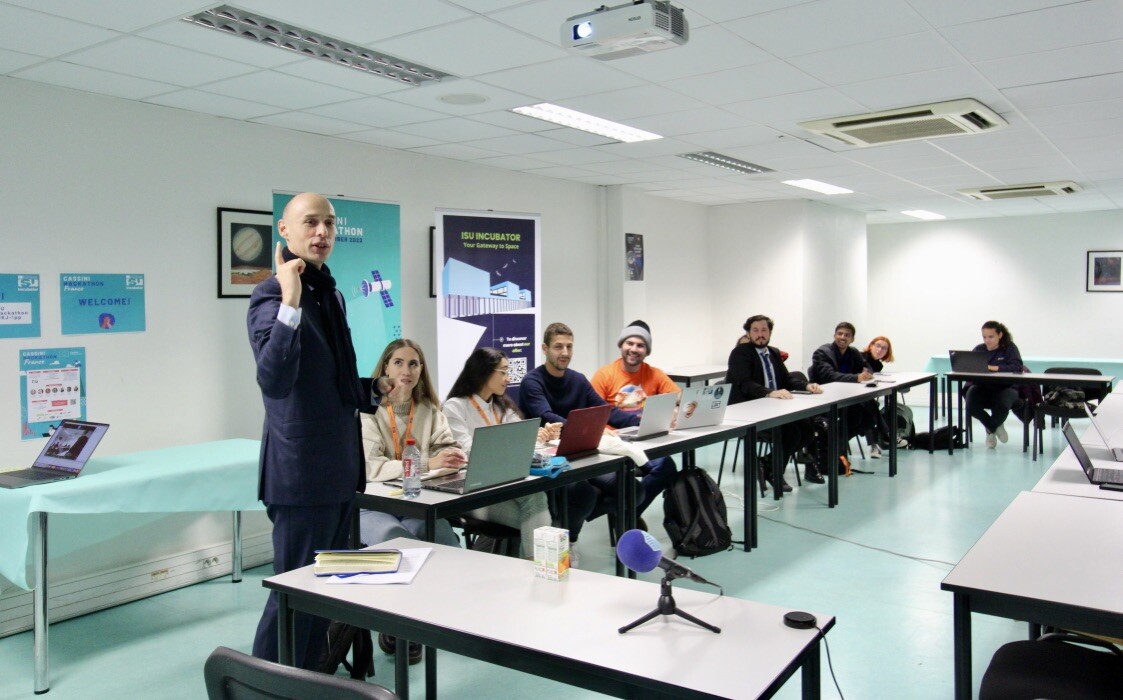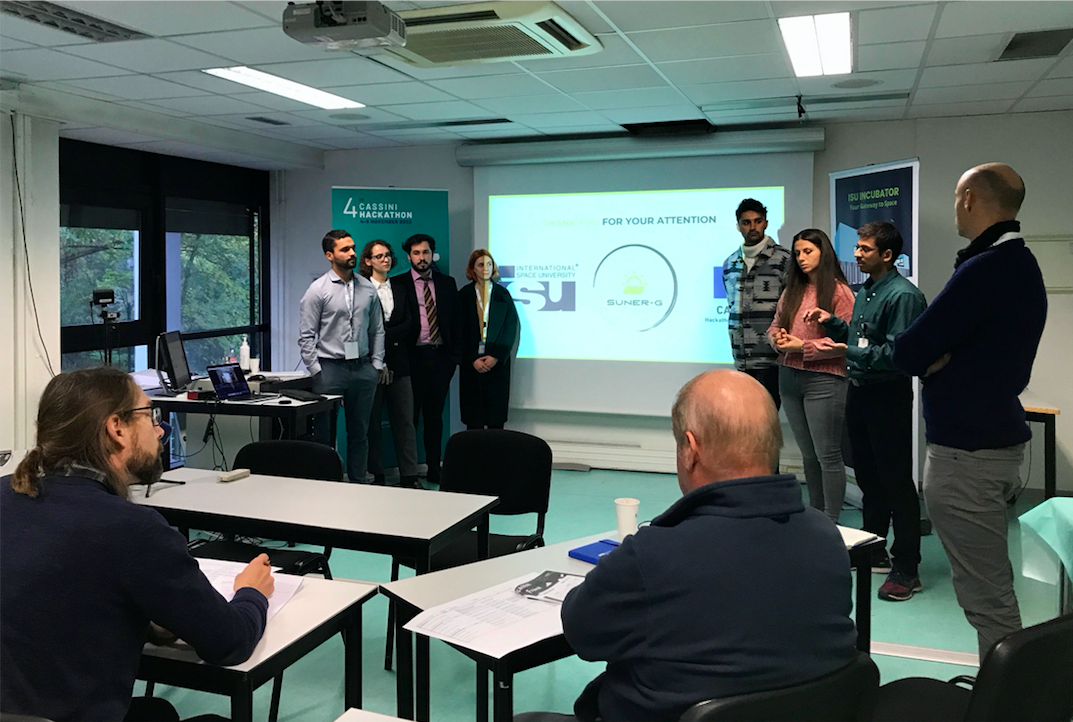
By Nicolas Peter
The entrepreneurial support process in the space sector follows often the same development path starting with the ideation process, going to incubation, and then followed by acceleration and scale-up. While the sequence is clear, each step along this chain of entrepreneurship has its dynamic set of actors as well as key characteristics. For these reasons, there is not a single approach that would apply to all contexts to successfully launch a space business, but one element is clear: the ideation phase is critical because this is where the new concepts emerge. As a next step, once those concepts are more mature, there are many structures such as the successful ESA BIC network to host space start-ups, ESA Business Incubation Centres – ESA Commercialisation Gateway.
To ensure a pipeline of talents and robust ideas, the ideation phase needs however to be supported by appropriate expert mentoring and coaching to identify the best opportunities and help these ideas come to fruition. There is however no pre-scripted receipt for success in accompanying the development of an idea into a viable space business. Therefore, the understanding by the mentors and coaches of the space entrepreneurial ecosystems matters, a task that ISU is embarked on to allow launching a successful business to space and help the space economy grow.
ISU: Entrepreneurship Starts Here!
At ISU, as the sole university dedicated to space education for 35 years, space entrepreneurship is embedded in all educational activities. In particular, it has been emphasized for 15 years in a dedicated intense two-week New Space elective as part of its Masters of Space Studies program Master of Space Studies – International Space University (isunet.edu). This helps to generate new business concepts and ideas and equips ISU students with crucial knowledge (both technical and managerial) and experience in developing viable business plans. Thus, while there is the perennial dilemma if entrepreneurs are born or made, at ISU we believe that they are revealed. This is particularly true when students from different backgrounds, each having their expertise, work together to launch new ventures.
To complement the teaching, ISU offers a dedicated structure to host developing businesses. The creation was based on a survey of ISU alumni. This study revealed that 80% of the recent alumni were in favor of such an ISU incubator Home – ISU Incubator (isunet.edu). The ISU incubator has thus been initiated at the ISU Central Campus with the support for the local authorities (i.e. Eurométropole de Strasbourg Les structures d’accueil des entreprises sur l’Eurométropole de Strasbourg | Strasbourg.eu) and is affiliated to the ESA BIC network ESA BIC Sud France | ESA BIC Sud France. The unique approach of ISU is not by the mere fact of hosting a dedicated space incubator, it is, however, the benefit of ISU’s multidisciplinary expertise in R&D, business, and finance. The incubator is a hub for participants to meet with the ISU Faculty and visiting lecturers from academia, space agencies, industry from around the world, and ISU students. Virtually every day, you can have informal discussions with your future technology partners, customers, or employees!
There is not a single approach that would apply to all contexts to successfully launch a space business, but one element is clear: the ideation phase is critical because this is where the new concepts emerge.
However, like in every journey, the first step is often the most difficult one, because the first step that is going from the idea and concept to creating the start-up itself (i.e. legal entity, first contract) and entering an incubator is a big commitment. The specificity of the ISU model of space entrepreneurship is that we offer pre-incubation to evaluate the feasibility of business ideas and to help to mature ideas to jointly decide between the start-up team and the ISU Incubator if it can be turned into a real business idea with market potential. This pre-incubation phase is still part of the ideation phase and is a key step where start-ups can bring their project to fruition without putting the team at financial risk. If during the pre-incubation period the business plan, proof of concept, and other aspects of the start-up seem to be coherent with the market then the team can present itself to the selection for incubation. Pre-incubation is in the first place offered to ISU alumni and targets business ideas with a direct or an indirect space component (e.g. by using processed space data) but is also open to the community at large. Pre-incubation on the ISU campus is most effective for interaction and early contact with seed funding candidates locally. Given financial obstacles (part of) the pre-incubation may also be done virtually.
ISU recently launched also a unique Space Policy and Entrepreneurship Lab (SPEL) Space Policy and Entrepreneurship Lab – ISU (isunet.edu) which is a dedicated research laboratory addressing the issues and trends in the domains of space policy and the space economy, including New Space worldwide. It serves as a global hub bridging the gap between academics and practitioners and professionals from space agencies and industry to facilitate international research on these topics building on the ISU’s 3Is approach (i.e. International, Intercultural and Interdisciplinarity) to train and educate the workforce of tomorrow and identify the best practices in the space entrepreneurship domain. The ISU SPEL is for instance involved in the EIT Manufacturing EuroSpaceHub project (EuroSpaceHub – EIT HEI Initiative (eit-hei.eu) that aims at increasing space innovation and technology transfer by connecting the academic world, industry, and start-ups.

Cassini Hackathon Hosted at ISU
ISU added also a new instrument to its toolbox of space ideation with an event hosted last weekend. On 4-6 November 2022, the ISU incubator hosted the French edition of the 4th edition of the CASSINI Hackathon CASSINI Hackathons | France. Along with nine other cities in ten different countries across Europe, aspiring space entrepreneurs worked during the same weekend on topics linked to “Space for the Financial World”. During this edition of the CASSINI Hackathon, participants across Europe were challenged to reimagine the future of finance, insurance, and investments with the use of European space technologies.
Three challenges had been identified for the theme of this initiative:
- Challenge #1: Enabling green and sustainable investment
- Challenge #2: Innovating financial tools and technologies
- Challenge #3: Advancing global market intelligence
At ISU for three days, teams of motivated hackers met either in Strasbourg or worked remotely (including an entire team from New Caledonia), to work on this year’s challenges that aimed to hack the finance sector. The weekend was the culmination of a series of preparatory activities led by the ISU Incubator and ISU SPEL with all participants, including the ISU Big Ideas Campaign.
The events brought at ISU Central Campus 10 experts from ESA, the Venture Capital firm Karista, the ISU incubated start-up EwoSmart, PwC, SES, SERTITT- ICube as well as ISU Faculty that shared insights of the space sector, its relations with the finance sector and how to build a successful start-up and how to use space data. The different teams were also able to benefit from experts’ advice and coach support and expertise. The weekend was filled with live interviews with the CASSINI central hub of the organizers and some participating teams.
Like in every journey, the first step is often the most difficult one, because the first step that is going from the idea and concept to creating the start-up itself.
Five teams (on-site, hybrid, and online teams) entered the final competition of the French edition and pitched their ideas during a grand finale. Each team had to prepare ten-minute pitches, a requirement on the ISU side to have more mature concepts. The teams worked on the various challenges identified for this Hackathon and came up with innovative business ideas.
- Team 1: IAI, working on blockchain for local indigenous land utilization
- Team 2: Road-Omics, aimed at empowering countries to build and monitor sustainable infrastructure
- Team 3: SUNER-G, looked at the optimization of green energy distribution via grouped solar panels
- Team 4: Neptune Energy & Space, investigated harnessing tidal resources to generate energy
- Team 5: Fin_Look, proposed a software platform to obtain factual data for the financial sector supporting investment decisions
A jury of experts composed of Sabrina Alam from SES, Gregoire Chabrol from ICAM, and Danijela Ignjatovic Ogrizovic, Walter Peeters, and Nicolas Peter from ISU assessed the performance of all teams. After an in-depth assessment, while all ideas had merits and innovation, the SUNER-G team composed of 7 ISU students and Alumni was selected by the jury to represent France among the 9 other European countries in the competition.
The SUNER-G team pitched its idea on Wednesday 9 November 2022 the occasion of the DEMO Day alongside the other local winners. While the team did not win the competition, it is now looking forward to defining its idea further during the Master’s New Space Electives and working with the ISU Incubator.
The CASSINI Hackathon was overall a great experience for all participants, and we saw many new ideas emerge! All participants were definitive winners! Going back to the entrepreneurial support process in the space sector and its development path, this Hackathon was only the first step in launching new space start-ups. ISU will accompany these potential start-ups in their next step which is launching their business by helping to turn their ideas into concepts and working with them to transition from ideation to incubation, with the unique ISU pre-incubation model and ISU entrepreneur-centric support!

Nicolas Peter is a Professor of Space Policy and International Affairs at the International Space University (ISU) seconded by the European Space Agency (ESA) and is the ISU Resident Faculty responsible for Space Policy, Economics, and Law (PEL) education and activities. He is also the head of the “Space Policy and Entrepreneurship lab” at ISU which is a dedicated research laboratory addressing the issues and trends in the domains of space policy and the space economy, including New Space worldwide. He is also involved in the management of the ISU incubator dedicated to space.
 SpaceWatch.Global An independent perspective on space
SpaceWatch.Global An independent perspective on space




